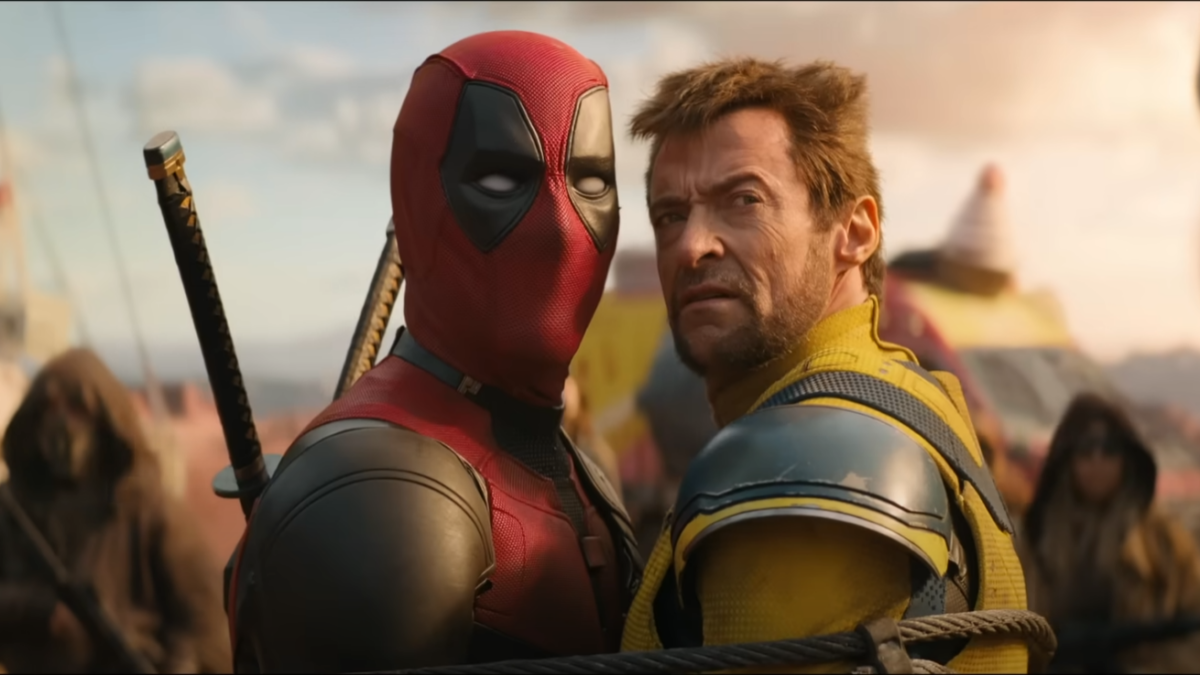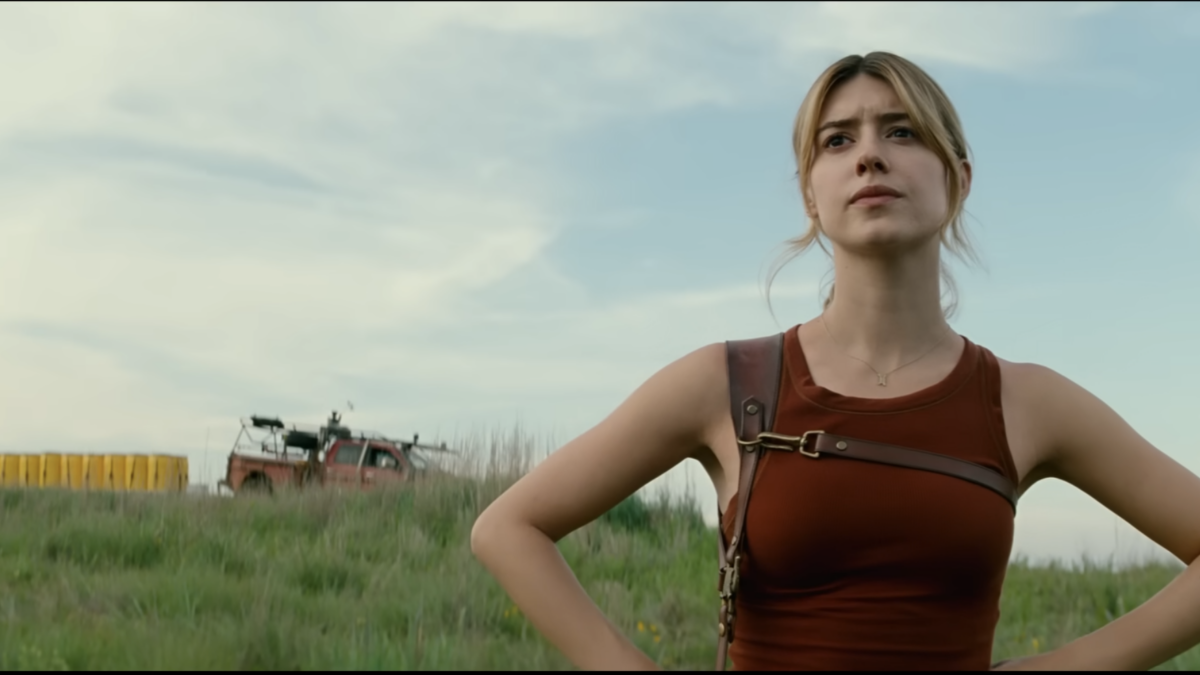
The following is excerpted and expanded from the book “We Can Be Heroes: The Radical Individualism of David Bowie.”
From almost the moment of rock star David Bowie’s death on January 10, 2016, commentators of all journalistic stripes began frantically pontificating on the meaning of his legacy. To say that the erstwhile Thin White Duke gave them a moving target would be an understatement.
There was, of course, a lifetime of music to be considered: Bowie’s large body of work touched upon nearly every subgenre within popular music (although his forays into country were blessedly brief). His penchant for theatricality enlivened the material without sacrificing its depth and meaning. There had even been a half-hearted acting career punctuated by some impressive moments (“The Elephant Man” on Broadway, “Merry Christmas Mr. Lawrence,” scene-stealing cameos in “The Last Temptation of Christ” and “The Prestige”). Perhaps most notably, Bowie’s playful challenges to gender and sexual norms made him a hero to the gay community and many others living outside of the mainstream.
Yet the very quality that caused him to become an icon in the first place—his deep and abiding sense of individualism—also prevented him from ever fully empathizing with any of the groups he inspired. He remained suspicious of collective action.
“I can’t tolerate people who want to form, or be part of, movements. It should always come back to individuals,” he said in 1977. Bowie’s discomfort with this sort of thing even extended to the shared euphoria to be found at a typical rock concert. “The idea of getting minds together smacks of the Flower Power period to me,” he told the writer William Burroughs. “The coming together of people I find obscene as a principle. It is not human. It is not a natural thing as some people would have us believe.”
Well, then. Bono he wasn’t. But neither was he some paragon of social-libertarian purity. There were, of course, contradictions—which should surprise no one because Bowie was, at the end of the day, not a philosopher or politician but simply a talented songwriter. What matters for our purposes is that from Bowie’s earliest steps onto the public stage up to his end, he remained preoccupied in his writing and his life with the individual’s struggle against the collective.
Or, if he was in a more chipper mood, he framed this as an exaltation of the extraordinary over the ordinary. What follows is a list of 15 songs—some famous, some obscure—that champion these ideas. To assist with this endeavor, I have enlisted a number of fellow writers and artists across the ideological spectrum to weigh in on the hidden meanings of these gems.
Heroes (‘Heroes’, 1977)
Perhaps Bowie’s most mature distillation of his individualistic philosophy, “Heroes” contains its share of obstacles both internal and external. Not only does the narrator “drink all the time,” he has to keep his love affair alive in a war-torn land in which “guns shot above our heads” and a wall arbitrarily divides the population—a clear nod to the divided Berlin in which Bowie lived at the time of the song’s composition.
The narrative seems to echo the doomed love affair between Winston and Julia, the protagonists of “1984,” whose fledgling attempts at finding a personal space of joy and happiness are ultimately crushed by the all-seeing, all knowing Big Brother that rules George Orwell’s fictional future England.
As it turned out, Bowie had real-life models for his protagonists. From the window of the studio where he and the musicians worked on the album every day, he saw a young couple embrace in the shadow of the Berlin Wall, directly below a turret. Not only was he struck by the incongruity of this image, he quickly realized that the couple in question consisted of Tony Visconti—Bowie’s lifelong friend and the album’s producer—and Antonia Maas, one of his backing singers. The fact that Visconti was limping through the last stages of a failing marriage at the time lent the situation an added poignancy—and futility.
Ultimately, “Heroes” strives for alchemy: We may be average and regular in the present moment, but we have the potential, at any time, for heroic thought and action—even if only for one day. The transformation can be brought about by an external event or through an internal change in perspective.
Rebel Rebel (‘Diamond Dogs,’ 1974)
As evidenced by the previous example, Bowie’s best songs almost always contain elements of what Faulkner called “the human heart in conflict with itself,” which tends to undercut their anthemic qualities even as it solidifies their timelessness. One major exception, however, is this famous track, which glories in a total liberation from conventional morality with no hint of doubt or negative consequence.
The searing defiance of its lyrics, married to a spiky guitar riff that, to paraphrase a Buddhist koan, seems to embody the face of rock ‘n’ roll before rock ‘n’ roll was born, ensures its immortality. Still, Bowie himself seemed to quickly tire of the song’s lack of nuance. “He sounded kind of bored with the song when he sang it live,” notes screenwriter and musician Darren Callahan. “A riff will only get you so far.”
Oh! You Pretty Things (‘Hunky Dory,’ 1971)
Here I will yield the floor to “Libertarianism for Beginners” author Todd Seavey, who has some things to say about this song.
“‘Oh! You Pretty Things’ contains the phrases ‘The Coming Race’ and ‘homo superior,’” notes Seavey. “‘The Coming Race’ was the title of a novel by the underrated and stealthily influential novelist Edward Bulwer-Lytton, who influenced generations of fascists, quasi-fascists, and perfectly pleasant sci-fi fans with the idea that a civilization genetically and technologically superior to our own exists hidden deep within the core of planet Earth, wielding an all-purpose energy called Vril.
“The phrase ‘homo superior’ was used in the Nietzsche-influenced 1935 novel ‘Odd John’ by Olaf Stapledon about a super-intelligent and vaguely effete mutant who bands together with others of his kind but is attacked by a society that fails to understand him. In the early 1960s, comics writer Stan Lee would use ‘homo superior’ to describe his mutant characters the X-Men. A perfect bow would have been put on all of these intermingled threads had Bowie lived a few years longer, since Marvel Comics’ movie division was reportedly considering casting Bowie as the (Bowie-influenced) cosmic messiah character Adam Warlock in the 2017 film ‘Guardians of the Galaxy Vol. 2.’
“In the film, Bowie probably would not have uttered the phrase ‘homo superior,’ since that would tread dangerously on the film rights to the X-Men, which were ceded from Marvel to Fox, but in our hearts we would know all these characters, plus some subterranean elves or fascists or something, are part of the same strange world. May its aspirational-individualist elements outlive its authoritarian elements.”
So there you go.
Changes (‘Hunky Dory,’ 1971)
Something of a theme song for the chameleonic Bowie, and an exhortation to listeners to “turn and face the strange.” In a rare moment of preachiness, Bowie admonishes the parents of offbeat kids: “Don’t tell them to grow up or out of it.”
Yet beneath the strident exterior, “Changes” is hardly the rallying cry it at first appears to be. Elsewhere in the song Bowie intimates that the titular changes are less a means of self-expression than a mechanism for avoiding self-reflection. “I’ve never caught a glimpse of how the others must see the faker,” he sings. “I’m much too fast to take that test.” And elsewhere: “Don’t want to be a better man.”
Cygnet Committee (‘Space Oddity,’ 1969)
This song takes direct aim at the groupthink aspects of the hippie movement. “I ravaged at my finance just for those / Those whose claims were steeped in peace, tranquility,” Bowie sings. Later, he mocks the violent tendencies of many of these supposed peace activists: “I will fight for the right to be right / I will kill for the good of the fight for the right to be right.” In a subsequent interview, Bowie reiterated the counter-revolutionary themes of “Cygnet Committee”:
I would like to believe that people knew what they were fighting for and why they wanted a revolution, and exactly what it was within that they didn’t like. I mean to put down a society or the aims of the society is to put down a hell of a lot of people, and that scares me—that there should be such a division where one set of people are saying that another should be killed. You know you can’t put down anybody. You can just try and understand. The emphasis shouldn’t be on revolution, it should be on communication.
Up the Hill Backwards (‘Scary Monsters,’ 1980)
“The vacuum created by the arrival of freedom / and the possibilities, if one can grasp it.” In this opening couplet, Bowie, consciously or not, gives voice to both the traditionalist and radical libertarian impulses in conservative thought, acknowledging the dislocation, or “vacuum,” created by the upending of established mores while at the same time welcoming the “possibilities” that such a shift heralds. This sentiment is echoed in the chorus, in which society is described as moving “up the hill backwards.” In a note of guarded optimism, we are told that “It’ll be all right.”
Panic in Detroit (‘Aladdin Sane,’ 1973)
Like “Cygnet Committee,” this song eviscerates violent political revolutionaries. The unnamed central character, who “looks a lot like Che Guevara” and is “the only survivor of the National People’s Gang,” sits out a riot he has instigated and winds up dead, presumably by his own hand, at song’s end. “My guess is that Bowie really was put off by the idiocy of rioting,” observes American Conservative editor Daniel McCarthy, “and certainly didn’t see anything revolutionary, progressive, or liberating about it.”
Jump They Say (‘Black Tie, White Noise,’ 1993)
This is Bowie’s most direct attempt to come to grips with his half-brother Terry’s Burns’ long-term struggle with mental illness and ultimate suicide. Here he casts Burns as a heroic figure, condemned at every turn for being different. “They” tell Burns to “jump”—a double-entendre, surely: it can be taken both to mean “jump on command” and “jump off the roof.”
Bowie, on the other hand, implores his brother to not listen to such commands. “I take this to be about ignoring the crowd as well as the negative voices in your head,” McCarthy says, “even though it didn’t work out for Bowie’s brother.”
All the Madmen (‘The Man Who Sold The World,’ 1970)
An earlier, more nightmarish treatment of the same subject that animated “Jump They Say,” in which the inmates of an asylum are portrayed as being saner than those outside. “I’d rather stay here with all the madmen than perish with the sad men who roam free,” Bowie sings. Mike Richmond, founding member of the seminal Athens, Georgia, band Love Tractor, notes, “To me this line seemed to echo the Krishnamurti quote, ‘It is no measure of health to be well adjusted to a profoundly sick society.’ Like Don Quixote and Hamlet before him Bowie was kind of a madman himself (whether pretend or for real, who knows or cares?) and I always liked that about him.”
Loving the Alien (‘Tonight,’ 1984)
Young Americans (‘Young Americans,’ 1975)
“What I’m really struck by in these two songs is Bowie’s genius for affectionate ambiguity,” McCarthy states. “Neither of these is a straightforward manifesto. ‘Loving the Alien,’ on its surface, emphasizes common humanity in a critique of organized religion. But just imagine how awful it would be if someone with Richard Dawkins’s sensibility had written it. ‘Young Americans’ winds up being a celebration of young Americans even though the lyrics are about unfulfilling sex, ‘bills you have to pay,’ and President Nixon—because somehow the idea of aspiration and dreaming of making it big are still part of the song’s undercurrent. It’s very subtle.
“In these songs, Bowie seems to make a critical point through the eyes of a participant, and the participant is never self-hating despite the critique: it’s still good to be a young American despite the conditions of the ’70s; it’s still good to be a believer even though you know the problems religion can cause. Bowie isn’t directly affirming either of these perspectives, of course, but he’s looking at them all through a participant’s eyes, so the critique is not outside and absolute.”
The Next Day (‘The Next Day,’ 2013)
This has been perceived by some to be a critique of Christianity, though it could just as easily be interpreted as a condemnation of the religious authorities of the day from Christ’s perspective. In either case, the song defends a visionary against a corrupt authority. “First they give you everything that you want / Then they take back everything that you have,” Bowie sings.
Further complicating, or perhaps clarifying, Bowie’s intent is the video, which was temporarily banned from YouTube due to its nudity, gore, and apparently blasphemous content. In response, Bowie’s website maintained that much of the troubling material drew its inspiration from the fourteenth-century novel cycle “The Decameron” and the Catholic legend of St. Lucy. Regardless of the source material’s pedigree, the video for “The Next Day” remains an unsettling viewing experience.
Joe the Lion (‘Heroes,’ 1977)
This celebrates the performance artist Chris Burden, a most radical individual indeed. As per the lyrics, Burden had himself nailed to his car, in a crucifixion pose, for his piece “Trans-Fixed.” The line “Guess you’ll buy a gun,” refers to the piece “Shoot,” in which Burden was shot in the arm by an assistant. This “man of iron” died in 2015 at the relatively advanced age of 69.
The song’s jarring chord progression and melody perfectly match the offbeat subject matter, and represent, for Darren Callahan, a defining moment in Bowie’s most individualistic phase as a composer. “No other period of his career was he so brave,” Callahan says, “so ahead of things, so absolutely free (and, let’s be honest, so unhappy and drugged up). It is the only period, for me, where he is not calculating anything; he is truly just smoking the pipe of creativity, an absolute open channel with no regard for anyone.”
Teenage Wildlife (‘Scary Monsters,’ 1980)
Bret Helm, singer and bassist for the band Audra, considers this seven-plus minute epic from side B of “Scary Monsters (And Super Creeps)” to be Bowie’s songwriting peak. “How rare is it to have the bridge section as your favorite part of a song?” Helm asks. “As I’m typing this, that section hits: ‘David what shall I do, they wait for me in the hallway … They move in numbers and they’ve got me in a corner’; I have goosebumps. I’ve always taken those lines literally, thinking of a physically disabled kid in high school that was constantly terrorized by soulless bullies. Let’s also not forget about those soaring Robert Fripp guitar lines, catapulting this song out of Earth’s exosphere.”
Red Sails (‘Lodger,’ 1978)
Selected by McCarthy “because libertarians like pirates.”









